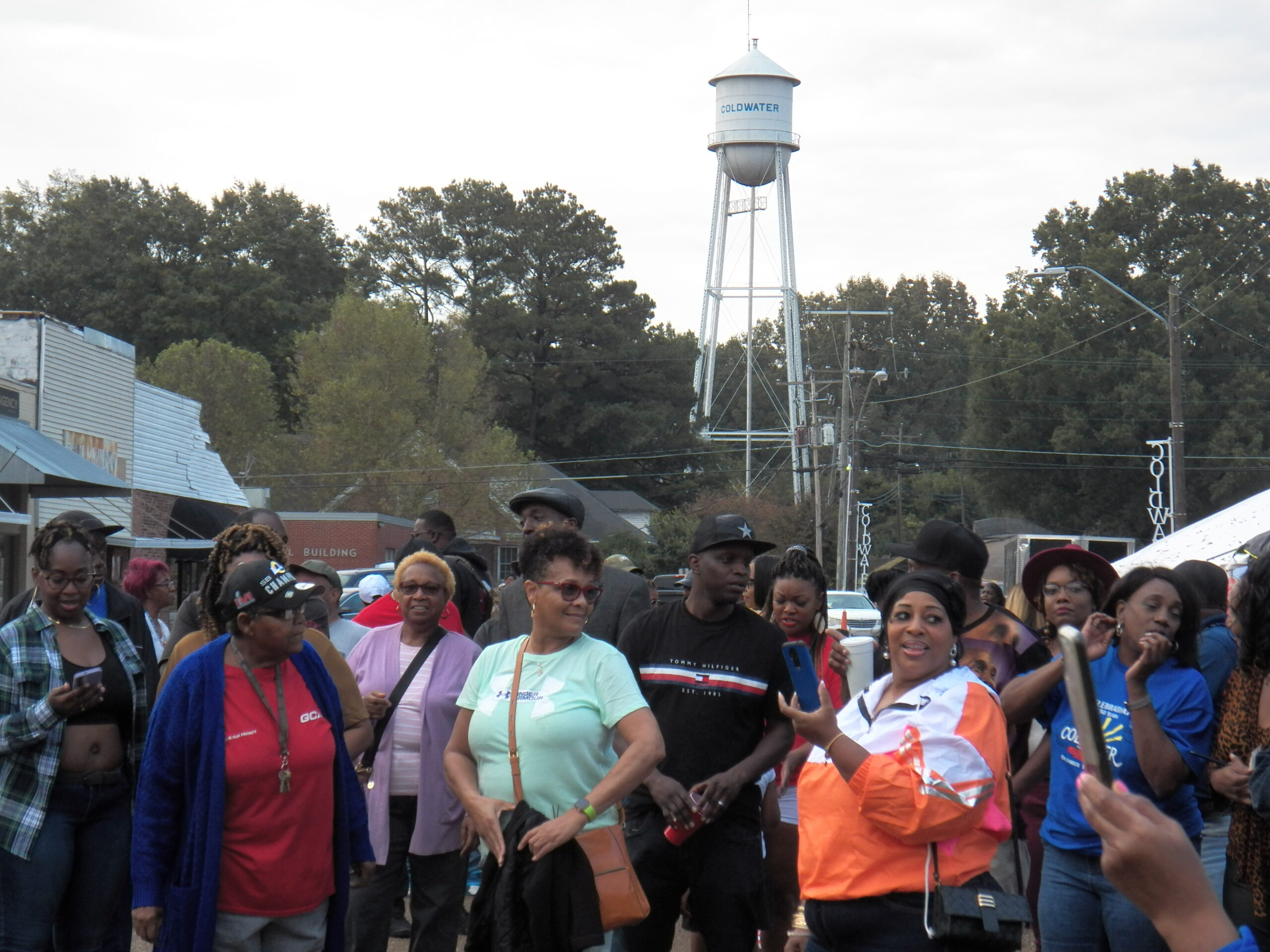









































































































The original town of Coldwater, Mississippi was founded in Tate County, Mississippi in 1872 along the Mississippi and Tennessee Railroad, which ran from Memphis to Jackson, Mississippi. Colonel Frank White of Como, Mississippi (for whom the Whitehaven neighborhood of Memphis was named) was president of the railroad and had some impact on where stations were located along its route. Although Senatobia was the county seat, the early town prospered, with a number of businesses and a hotel. In the 1920s, a local man named Hoyt Wooten founded the Wooten Radio Electric Company in Coldwater and successfully applied for one of the earliest radio broadcast licenses in the Mid-South. He asked for and received the call letters WREC, which represented the name of his company, and the fledgling station broadcast from the lobby of the Hotel Coldwater before it ultimately moved to the big city of Memphis.
But Coldwater’s prosperity would not last. During the 1930s, with massive unemployment coupled with unprecedented natural disasters, including drouths and dust storms in the midwest, and floods in the South, the government began massive public works projects, many of which were river dams to create large reservoirs. These would both prevent flooding and provide sources for lower cost electric power, and Mississippi, lagging behind in electricity and suffering from frequent flooding, was a priority spot for large man-make lakes. One of these, Arkabutla, was planned by the Corps of Engineers near Coldwater, and it soon became clear that the townsite would be flooded by the resulting lake. The town and its streets and buildings would have to be abandoned.
The United States government therefore built the current town of Coldwater several miles to the south of the previous town, hiring a city planner from Memphis to design it, using the latest principles of city planning. Aside from the immediate town center, which was a rectangular square, streets were curved and meandering like modern subdivisions. The highway through town, Highway 51, was four-laned and given service roads. A special area was set aside for business and industry. A peculiarity of New Coldwater was that the streets were laid and planned before anyone actually moved there. Many of the residents had their original houses and buildings pulled to the new townsite, which opened in 1942. Although the location was several miles closer to Senatobia, Coldwater still retained a high degree of separate identity from its larger neighbor to the South.
In the 1950s, Coldwater began to become famous in the music world, when Robert “Buster” Williams built Coldwater Indsutries Inc. which was actually a second record pressing plant for Plastic Products in Memphis. The pressing plant in Coldwater pressed records for Sun, Stax, Hi and a number of major labels as well, but closed in the 1970s after a unionizing effort and the closure of many of the company’s clients, including Stax Records. Music researchers also came through in the 1960s and 1970s, including folklorist Dr. David Evans who was attracted to the city’s Black gospel scene at that time.
In recent years, Coldwater has suffered from a loss of retail business to Senatobia and Hernando, and also the threatened loss of their high school, which the Tate County School District wants to split between predominantly-white high schools in Independence and Strayhorn, despite the fact that both are a half-hour drive from Coldwater and are in remote parts of the county. Residents of Coldwater have opposed the move, and are continuing to stand up for their town.
In October of 2022, the Coldwater Sesquicentennial was held, which people in the area informally called “Coldwater Day.” A crowd of several hundred people thronged the town square to hear performances from local gospel groups and blues and soul performers. Perhaps the highlight of the evening was a performance by Dre Walker and the Mississippi Boys, a popular soul band from Como. There were also a number of food trucks, and with election season so close, plenty of politicians campaigning for votes and lots of political signs everywhere.
Recently, there are signs that Coldwater may be finally starting to turn a corner, including the opening of Red’s Bar-B-Q and Blues, which is not only a good restaurant but also a live music venue, and the reopening of a long-vacant supermarket. Coldwater is also the new home of Sharde Thomas’ annual Goat Picnic, after they were forced to move from Otha Turner’s historic ground at Gravel Springs. We can wish Coldwater a prosperous next 150 years.

